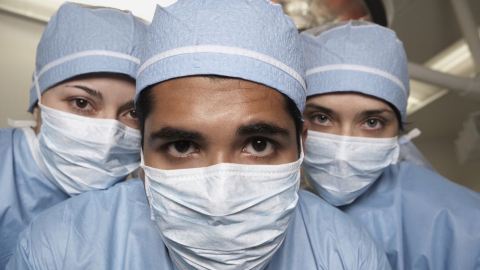Getting Less Medical Attention Can Mean Being Healthier

If patients better understood the health risks associated with certain kinds of medical care, they would likely seek less treatment, according to a new review of studies published in the journal JAMA Internal Medicine.
The study found that because most patients overestimate the benefits they are likely to receive from certain treatments — ranging from cancer-screening tests to preventative medications and surgeries — they are likely to seek more care, even when serious medical risks result.
In a 2002 study reviewed by the current publication, for example, a majority of women believed that having a double mastectomy reduced their chances of getting breast cancer by 65 percent.
For 80 percent of those women, however, the real reduction was just 6 percentage points because they did not have the BRCA genetic mutation, which greatly increases the risk of breast cancer.
An eagerness to root out potential disease often exposes patients to new risk factors, either because doctors had not informed them of the risks or because they preferred to focus on the rewards of taking medical action. Health professionals reporting on the study for The New York Times write:
“A single CT scan exposes a patient to the same amount of radiation as 300 chest X-rays, and carries with it a 1-in-2,000 chance of inducing a fatal cancer. More than 40 percent of patients underestimated a CT’s radiation dose, and more than 60 percent of patients underestimated the risk of cancer from a CT scan.”
Dr. Mark Hyman, founder and Medical Director of the UltraWellness Center in Lenox, Mass., explains how the American medical system tends to over diagnose wellness problems, and paper over them with Band-Aid treatments, instead of helping patients understand how they can live a healthier life in which less medical treatment is necessary.
“I’m a firm believer in do-it-yourself health, that self-care is where this all starts, and that 80 percent of health conditions can be solved without a physician. In fact, those patients who are going to physicians to solve those problems are not getting results — people with migraines and irritable bowel and reflux and obesity and diabetes and high blood pressure. They’re getting medications that are Band-Aids on the symptoms, but not really dealing with the cause.”




